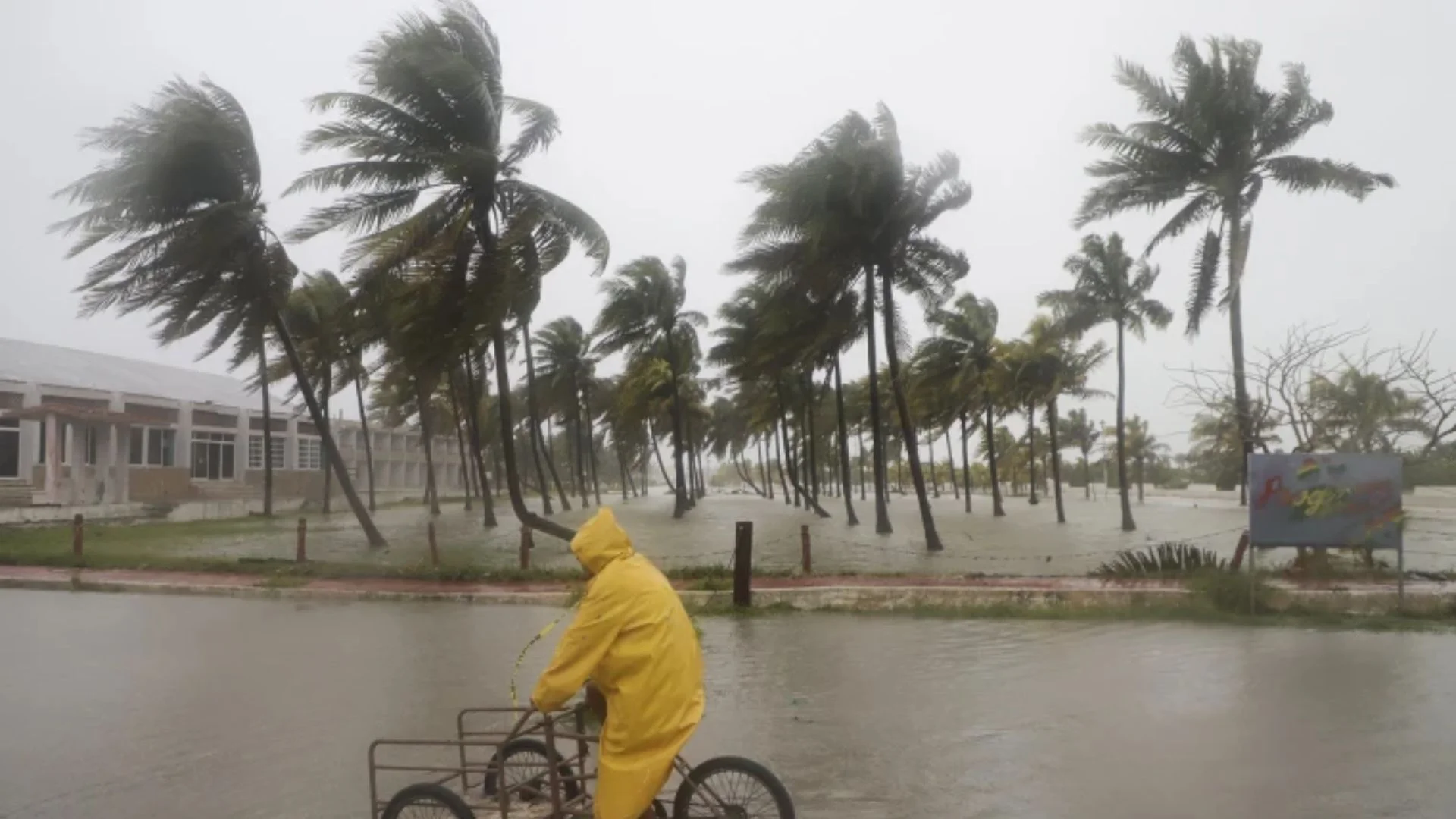Climate experts and officials are raising alarms over the increasing intensity of hurricanes, with Hurricane Milton becoming the latest to pose a significant threat. Over a million Florida residents have been ordered to evacuate as the state prepares for Milton’s arrival on its west coast. The US National Weather Service has confirmed that Milton is the third fastest-intensifying storm in Atlantic history, with experts warning that climate change is fueling stronger, more dangerous storms.
How powerful is Hurricane Milton?
Following the devastation caused by Hurricane Helene just weeks earlier, Hurricane Milton’s swift transformation into a Category 5 storm has caught many by surprise. Within 24 hours, Milton went from a tropical storm to a full-blown hurricane, with winds reaching a staggering 180mph as it crossed the Gulf of Mexico toward Florida. This rapid intensification—defined as an increase in wind speed of at least 35mph within 24 hours—was far exceeded by Milton, which gained 90mph during this period, according to Climate Central.
Although Milton has slightly weakened to a Category 4 hurricane, it remains one of the most powerful storms to threaten the US. Mass evacuations in areas like Tampa are already underway, with Florida-based meteorologist Noah Bergren calling Milton’s strength “astronomical” and approaching the maximum potential for hurricanes in this region.
Why has Milton strengthened so quickly?
The intensity of hurricanes is influenced by factors such as thunderstorms and wind patterns, but a primary factor in rapid intensification is the heat content of the ocean and atmosphere. Warmer air and water provide more energy to a storm, allowing it to gain strength faster and carry more moisture, leading to torrential rainfall and flooding.
The Gulf of Mexico, where Milton formed, has seen record-high temperatures this year, described as being as warm as a “bathtub.” The storm has been energized by these unusually warm waters, much like Hurricane Helene was. The ocean temperatures near Milton’s core are 2 to 3 degrees Celsius above average for this time of year, amplifying the storm’s power.
The role of climate change in stronger storms
While hurricanes are a natural occurrence, scientists are increasingly confident that global warming, driven by the burning of fossil fuels, is making storms more intense. A study published last year showed that hurricanes in the Atlantic are 29% more likely to intensify rapidly now compared to past decades. This trend suggests that climate change is playing a significant role in making storms like Milton stronger and more destructive.
Milton is part of a worrying pattern of increasingly catastrophic hurricanes, joining storms like Harvey in 2017, Laura in 2020, Ida in 2021, and Ian in 2022. The number of Category 4 or 5 hurricanes hitting the US since 2017 equals the total from the previous 57 years.
What are the risks ahead?
For Florida’s west coast, the combination of Hurricane Helene’s damage and the looming impact of Hurricane Milton is expected to be devastating, with the recovery process potentially lasting months or even years. As global temperatures continue to rise, extreme weather events will likely become more common, pushing people to reconsider where they live and leaving insurers hesitant to cover properties in vulnerable areas.
When is Hurricane Milton expected to hit?
Milton is projected to make landfall on Florida’s central Gulf coast late Wednesday. Despite slight fluctuations in strength, it is expected to remain a life-threatening hurricane upon reaching the coast. As of Tuesday afternoon, the storm was about 520 miles southwest of Tampa, with winds sustained at 155mph.
President Joe Biden has postponed an overseas trip to monitor the situation, warning that Milton could be one of the worst storms to hit Florida in the last century.























